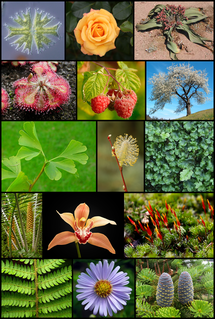
Cascada are a German dance music act founded in 2004 by singer Natalie Horler, DJ Manian and DJ Yanou. They are best known for their hit singles "Everytime We Touch", "What Hurts the Most", "Evacuate the Dancefloor" and "Miracle". Cascada have sold over 30 million albums worldwide in addition to an estimated 15 million digital downloads. Cascada represented Germany at the Eurovision Song Contest 2013 in Malmö, Sweden. While being one of the most successful acts of the dance music genre itself, Cascada was named the most successful German act of the 21st century.
"What Hurts the Most" is a song written by American songwriter Jeffrey Steele and English songwriter Steve Robson. Initially recorded by country music artist Mark Wills in 2003 on his album And the Crowd Goes Wild, it was covered by Bellefire a year later. The first version to be released as a single was by pop singer Jo O'Meara in 2005, from the album Relentless. Later that year, country band Rascal Flatts covered the song as well, releasing it as the first single from the 2006 album Me and My Gang, topping the U.S country and adult contemporary charts with it. German band Cascada later had international chart success with the song in 2007. It was also covered by Eden in 2008.

Natalie Christine Horler is a German singer and television presenter of English descent and the lead singer of Eurodance and Eurotrance group Cascada. She is known to have a mezzo-soprano voice type and spans three octaves in her range.
Siparuna gentryana is an evergreen monoecious tree which grows to 20 m in height. It is found in primary forest habitats in western Ecuador and Colombia. It is similar to the more widespread Siparuna cristata but can be distinguished by its much smaller fruits which are spiny rather than smooth.
Siparuna lozaniana is an evergreen dioecious shrub which usually grows to 8 m in height. It is found in wet montane forest habitats in central Colombia. It can be distinguished from Colombian congeners such as Siparuna calantha and Siparuna petiolaris by the combination of leathery oblanceolate or obovate leaves and smooth rather than spiny fruits.
Siparuna calantha is an evergreen dioecious shrub which grows to around 10 m in height. It is found only in the Sierra Nevada de Santa Marta in Colombia. It is similar to Siparuna petiolaris but differs in having much broader leaves.
Siparuna vasqueziana is an evergreen dioecious shrub which grows to 5 m in height. It is found in primary forest habitats in Amazonian Peru. It can be distinguished from all other Siparuna species by its yellow flowers with exceptionally long tepals.
Siparuna campii is a species of plant in the Siparunaceae family. It is endemic to Ecuador.
Siparuna croatii is a species of plant in the Siparunaceae family. It is endemic to Ecuador.
Siparuna eggersii is a scrambling, large shrub in the Siparunaceae family. It is endemic to Ecuador, where it is endangered due to habitat destruction. It has glabrous leaves and fig-like, red fruit with a lemon scent.
Siparuna guajalitensis is a species of plant in the Siparunaceae family. It is endemic to Ecuador.
Siparuna multiflora is a species of plant in the Siparunaceae family. It is endemic to Ecuador.
Siparuna palenquensis is a species of plant in the Siparunaceae family. It is endemic to Ecuador.
Siparuna piloso-lepidota is a species of plant in the Siparunaceae family. It is endemic to Ecuador.

German Eurodance group Cascada has released five studio albums, four compilation albums, two remix albums, 27 singles, one promotional single and 25 music videos.
S. petiolaris may refer to:

The Opel Cascada is a compact convertible engineered and manufactured by the German automaker Opel since April 2013. It is also marketed as the Opel Cabrio in Spain, Vauxhall Cascada in the United Kingdom, the Holden Cascada in Australia and New Zealand, and the Buick Cascada in the United States and China. It is not sold in Canada.

"Glorious" is a song performed by German dance recording trio Cascada, written by Yann Peifer, Manuel Reuter, Andres Ballinas, Tony Cornelissen. The song was included on their compilation album The Best of Cascada (2013). It was announced that the song would be one of the candidate songs of the Unser Song für Malmö, the German national selection for the Eurovision Song Contest 2013. A preview of the song was published on 9 January 2013. The same day the full version was leaked. The song represented Germany in the Eurovision Song Contest 2013. The song was released in Germany as a digital download on 8 February 2013.








